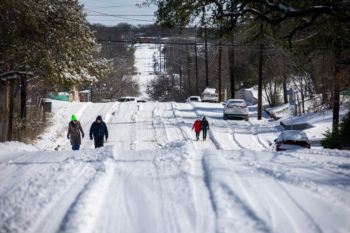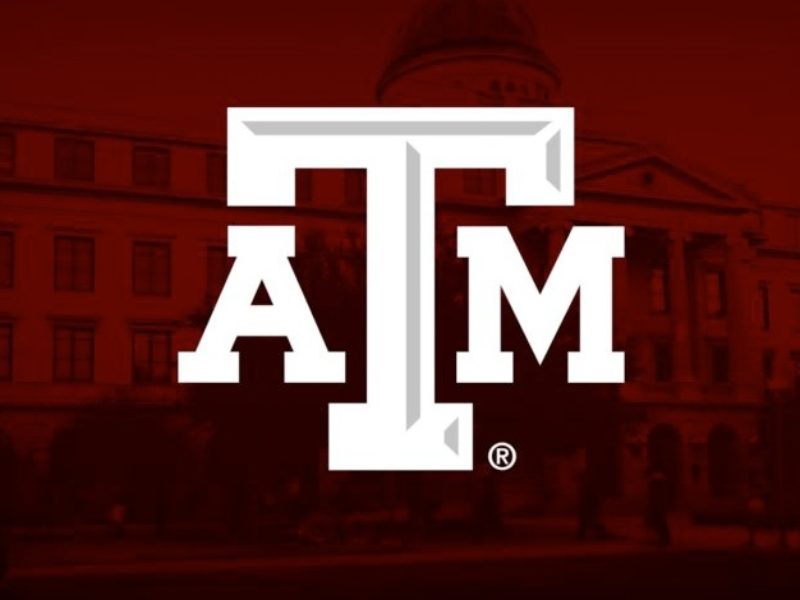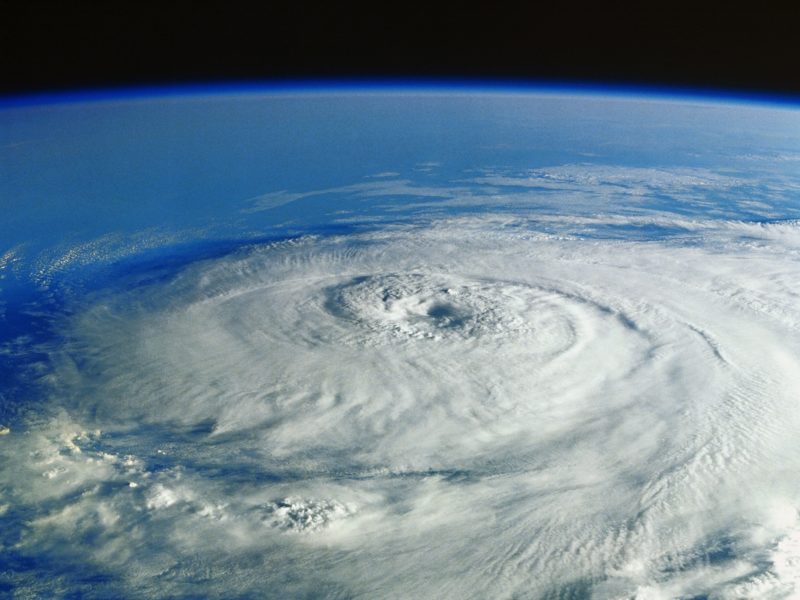Could Texas See A Repeat Of Last Year’s Winter Storm?

Most Texans will never forget last year’s historic winter storm that paralyzed much of the state and set numerous record-low temperatures. But a Texas A&M University expert says that in any given year, there is only about a 2 percent chance of such a storm occurring.
John Nielsen-Gammon, state climatologist and regents professor at Texas A&M, said there were a series of events that led to the devastating winter storm that plunged temperatures below 0 in several areas, resulted in the deaths of 246 people and caused almost $200 billion in damages in one of the worst natural disasters in Texas history.
First, he said the wind patterns in the upper atmosphere went through a disturbed phase, which happens from time to time in most winters. Then, the jet stream polar vortex moved southward into southern Canada and stayed there for a while.
“Finally, the jet stream coming from the Pacific Ocean dipped southward, allowing low-level cold air to plunge from beneath the polar vortex into the central and southern United States,” he said. “For several days, we ended up with long-lasting cold in addition to intense cold. On top of that, there were two or three winter storms that blew through while the cold air was in place, including Winter Storm Uri.”
He said the winter storm coming tonight and tomorrow will cause problems, but Texans will be helped by the fact that temperatures won’t be as bitterly cold as they were during Uri.
“We usually only get such cold winter storms only a few times every century. There’s only about a 2 percent chance every year of it occurring,” he said.
He added that looking at the range of low temperatures, Winter Storm Uri was in the top five of all-time Texas cold events.
“December 1989 was more intense but fairly short,” he said. “December 1983 was less intense but was colder for longer. And February 1899 was worse by just about any standard.”
Extreme cold events have become less common in recent years, partly due to climate change, Nielsen-Gammon’s research team has found. This makes February 2021’s event even more unusual considering that it happened amid overall warmer temperatures, he said.
“I think it was partly luck that we went about three decades without really cold temperatures across the state,” he said. “In Texas’s historical record, very cold weather was much more common until the 1990s.”
Nielsen-Gammon warned last year that cold weather in mid-February would be colder than anything Texans have experienced in the last 30 years. At the time, the consequences of the freezing temperatures were unknown.
“Now, we know at least some of the possible consequences,” he said. “Since then, steps have been taken to make our electrical power system more resilient. Whether they work or not, at least we all now have a better sense of the complications that can arise with extreme cold, and we can be ready for them.”
Media contact: John Nielsen-Gammon, 979-862-2248, n-g@tamu.edu





